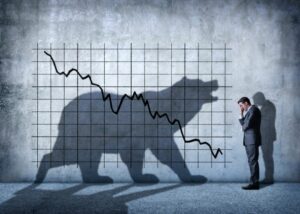Food prices are one of the most common subjects being discussed in our daily life. People are always talking about it on the television, in newspapers, magazines and even on social media. Many people have an idea of what the food should cost and how it can be managed. However, understanding the complex factors that affect food prices is difficult.
Recently has been discussed in Reddit, people are now being more concerned about what food that they should and shouldn’t buy during this recession. Making responsible purchasing decisions during this inflation season is important. So knowing what you should do to go through the raising of food prices is vital for yourself, your family and the country’s economy.
What are the Reasons for the Food Prices Increase?
The August 2022 Consumer Price Index (CPI) which has been announced recently is one of the indicators that the consumer price is still quite high. For August 2022, CPI reads 8.3% where it is showing a small decrease compared to the previous month, July 2022 with 8.5%.
This number not only affects the major consumer items such as the price of gas but it also covers the grocery and food prices. So, what makes the food prices increase?
Reopening after Covid-19 Pandemic
Many are discussing that one of the reasons why the food prices increase is due to the reopen post Covid-19 almost 2 years lockdown. According to Today.com in their article, most of the Americans are starting to eat out again and the habit came back fast and tremendously.
Increasing Prices of Oil
With the recent event of war between Russia and Ukraine as well as the scarcity of oil and gas at this moment, causing the price of oil to hike. So, the cost of transportation and logistics of food will be significantly affected by this outcome.
Climate Change
The changes in the world’s climate is definitely worrying hence causing the world to suffer from the greenhouse effect. The world’s air temperature increases, the land gets dry but the rains get less. All the crops were affected and damaged. Moreover, when it does rain, the water is not being absorbed but runs off the land which eventually causes flooding and damages the crops.
Limited crops being harvested causing the limited supply of food to the same and even increasing demand, and it will cause the food prices to rise even higher.
Is There any Food that You Should be Stopped Buying During Inflation?
Based on the latest data released by the US Bureau of Labor Statistics , these are the main food items that will be pricier and you at least should be planning to buy it in moderation.
1. Cereals & Bakery including Your Favorite Pasta

Cost for cereal and bakery can be higher after this, as the BLS announced that the product of cereals and bakery has increased over 1.2% in cost over the month. According to the sharing made by goodto.com, the price of your favorite 500g bag of penne pasta has increased by 18p (39.5%) to an average of 64p. This is due to an increase in the cost of pasta’s key ingredient – durum wheat. A large portion of the durum wheat used to make pasta comes from Canada.
2. Meat & Chicken

In the last two years during the pandemic, prices of meat and poultry have been trying hard enough to be maintained cheap and steady. But according to USDA & the report released by BLS, this item also will experience increasing in cost without exception. Grocery shoppers should be aware that beef and veal prices could increase between 6% and 7%, pork prices by 4% and 5%, and other meat prices by 3.5% and 4.5% in the coming month, according to eatthis.com.
The recent cases of bird flu also affect the beloved rotisserie chicken while also raising chicken and other poultry prices by up to 6.5%, according to the USDA.
3. Fish

The USDA also forecasts that increased costs of fish will continue for a while despite the fact that fish prices have already risen this year. While adding that consumers may see an increase between 5% and 6% reflected by the end of 2022, ASDA verified that, “1.5-percent increase in the price of fresh fish and seafood drove a 0.8-percent price increase in fish and seafood between February and March 2022.”
4. Eggs

The highly virulent avian influenza has infected (maybe still is) a sizable number of birds. According to Bloomberg, the incidents are endangering the exports and make egg harvesting more challenging. The price of a dozen eggs could fluctuate throughout the rest of the year because of the issue of supply and demand.
5. Fruits & Vegetables

The full impact of the Russian invasion of Ukraine, the ensuing sanctions and the rise in fertilizer prices will be felt and give a huge whoop to the price of fruits and vegetables until later in 2022 and maybe approaching the year 2023, according to a global commodity expert on CNBC.
6. Dairy

Dairy goods are yet another more expensive grocery store purchase. The USDA states in the report that rapid growth in the consumption of dairy products have caused rises in retail prices in recent months.
The price of dairy products increased by 1.2 percent in March 2022, continuing the pattern.
Conclusion
While all the major food consumed by humans are increasing in prices nowadays, what should you do to survive this inflation and food prices hike? You shouldn’t cancel your plan to have lunch with friends outside, or even only eat bananas everyday.
Here are some easy tips you can take to prevent food waste and lower your shopping price :
- Tracking your grocery spending
- Making a list of what you already own and use it
- Proper meal planning at home
You can also adopt a smart shopper habit in your daily grocery shopping like :
- Comparing prices of food
- Shop around, don’t fix to one single shop. There are shops out there offering lower prices
- Think about buying useful, non-perishable things in large quantities. Buying more can be even cheaper
- Use an extra freezer when necessary. This is important to keep your food fresh and edible in the next few weeks.
As the food and grocery prices increase, you should keep your health first on the list when buying food too. Never opt for junk and cheap food which doesn’t have much nutrients in it, as cheap and healthy may coexist when it comes to budgeting.








